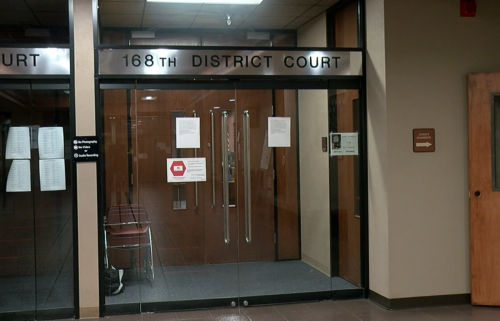Blinken postpones trip to Beijing after Chinese spy balloon spotted over US
By Jennifer Hansler, Kevin Liptak, Jeremy Herb, Kylie Atwood, Jim Sciutto and Oren Liebermann, CNN
US Secretary of State Antony Blinken has postponed his upcoming trip to China in response to the flying of a suspected Chinese spy balloon over the United States, in what marks a significant new phase in the tensions between Washington and Beijing.
Blinken said at a press conference Friday that the US was confident the high-altitude balloon flying over the continental United States was a Chinese surveillance balloon.
Blinken, who was due to depart Friday night for Beijing, said the Biden administration concluded that “conditions were not conducive for a constructive visit at this time.” He informed China’s top diplomat, Wang Yi, in a call Friday morning that he was postponing his trip.
“In my call today with Director Wang Yi, I made clear that the presence of this surveillance balloon in US airspace is a clear violation of US sovereignty and international law, that it’s an irresponsible act, and that the (People’s Republic of China) decision to take this action on the eve of my planned visit is detrimental to the substantive discussions that we were prepared to have,” Blinken told reporters Friday.
The Chinese foreign ministry claimed Friday that the balloon was a “civilian airship” used mainly for weather research that deviated from its planned course. The statement from a spokesperson for the Chinese Foreign Ministry was the first admission that the airship originated in China.
“It is a civilian airship used for research, mainly meteorological, purposes. Affected by the Westerlies and with limited self-steering capability, the airship deviated far from its planned course. The Chinese side regrets the unintended entry of the airship into US airspace due to force majeure,” the Chinese foreign ministry said.
“The Chinese side will continue communicating with the US side and properly handle this unexpected situation caused by force majeure,” the statement added, using a legalistic term to mean circumstances beyond China’s control.
A senior State Department official said that the US has acknowledged China’s “statement of regret” but that the presence of the balloon in US airspace was “a clear violation of our sovereignty as well as international law, and it is unacceptable that this has occurred.”
“In this current environment, I think it would have significantly narrowed the agenda that we would have been able to address,” the official added.
A US military official said the incident is serious because of the “audacity” of the Chinese government, rather than any intelligence gain. While existing satellites are able to gather similar amounts of information, the timing of the spy balloon — right before the planned Blinken trip — and the fact that it is flying right over the continental US contribute to the seriousness of this moment, this official said.
“Once we detected the balloon, the US government acted immediately to protect against the collection of sensitive information,” Blinken said Friday. “We communicated with the PRC government directly through multiple channels about this issue. Members of my team consulted with our partners in other agencies, and in Congress. We also engaged our close allies and partners to inform them of the presence of the surveillance balloon in our airspace.“
Blinken trip was set to follow Biden-Xi meeting
The decision to postpone Blinken’s trip was made after high-level conversations between Blinken, President Joe Biden and other top national security officials, according to people familiar with the matter.
White House officials had viewed US-China relations as improving in the weeks following Biden’s meeting in November with Chinese President Xi Jinping. Blinken’s trip was to be the culmination of more robust talks between Washington and Beijing in the two months since the G20 summit in Bali, Indonesia.
In the lead-up to Blinken’s trip, officials said it was possible that Biden and Xi could speak again at some point in the next several months.
But Biden has been sensitive to criticism from Republicans and others that he is too soft on China. And while he agreed with Pentagon recommendations not to shoot down the balloon because it posed a threat to people on the ground, he did want to demonstrate some type of response.
Officials also believed the timing of the balloon could throw off Blinken’s agenda in Beijing and did not necessarily want his visit to become solely about the incident.
Blinken still intends to travel to China “at the earliest opportunity when conditions allow,” the State Department official said, though the official did not elaborate on what conditions the US is watching for.
Blinken said at his press conference Friday that he would visit Beijing “when conditions allow.”
Earlier this week, the State Department summoned China’s charge d’affaires in Washington, Xu Xueyuan, “to deliver a very clear and stark message” regarding the discovery of the spy balloon, a second US official told CNN. That message was conveyed directly by Blinken and Deputy Secretary of State Wendy Sherman, according to the senior State Department official, who said “that same message was delivered at senior levels in Beijing.”
Biden advised not to shoot down
The balloon — which is the size of three buses — was spotted over Montana where 100 intercontinental ballistic missiles are buried in missile silos at Malmstrom Air Force Base.
Pentagon spokesman Brig. Gen. Patrick Ryder said the US government has been tracking the balloon for several days as it made its way over the northern United States, adding it was “traveling at an altitude well above commercial air traffic and does not present a military or physical threat to people on the ground.”
White House press secretary Karine Jean-Pierre told reporters Friday that Biden was advised by military leaders not to shoot down the balloon because of the risk to safety and security of the people on the ground.
While the balloon’s current flight path carries it over “a number of sensitive sites,” a senior US defense official said it does not present a significant intelligence gathering risk. The balloon is assessed to have “limited additive value” from an intelligence collection perspective, the official added.
Ryder said the suspected surveillance balloon is currently moving eastward and is over the central United States. He added that the US military will not get into “hour-by-hour” updates on the location, but said the public can look up and see it.
“The public certainly has the ability to look up into the sky and see where the balloon is,” Ryder said.
The balloon has a “large payload underneath the surveillance component,” he added, comparing it to a basket under a blimp. He also said that what makes this surveillance balloon different from other similar balloon activity in the past is the “duration and the length of which it has been over US territory.”
Biden was first briefed on the incident on Tuesday and has continued to receive updates, Jean-Pierre said.
Staff for the congressional intelligence leaders were briefed Thursday afternoon, and Pentagon State Department officials briefed leadership staff and national security staff on Friday, the official added. The administration has “also provided additional detail in writing.”
There are also efforts to brief lawmakers behind closed doors next week when Congress returns.
Congress has been briefed on China’s “surveillance balloon activities” in the past, the official said, including a briefing for “key committees” that took place “last August,” per the official.
Powered by a solar array
Ryder reaffirmed on Friday that the Defense Department knows the surveillance balloon floating over the northern US is Chinese and said that it “has the ability to maneuver.”
“The balloon is maneuverable, clearly its violated US air space, and again we’ve communicated that fact to the (People’s Republic of China),” Ryder said. He did not indicate any details on how it can be maneuvered.
Sources familiar with the matter previously told CNN that the balloon’s movement relies primarily on the jet stream. Ryder added on Friday that the balloon “has changed its course which, again, is why we’re monitoring it.”
China can control the surveillance balloon to an extent, for example, by turning on and off the surveillance gear inside of it, the sources said.
Pentagon officials said they did not believe the balloon had surveillance or intelligence-gathering capabilities above and beyond Chinese spy satellites in low earth orbit, but unlike satellites that pass rapidly over a location every 90 minutes, a spy balloon can loiter over a spot and gather more of a “pattern of life” of a particular site, the official said.
In the past, the US has simply allowed balloons like this to waft away, without taking any action or publicizing their presence over the US, the sources said. It is also not the first time a surveillance balloon has appeared over the United States.
The US official said there were similar incidents with suspected Chinese surveillance balloons over Hawaii and Guam in recent years. On Thursday, a senior defense official said, “Instances of this activity have been observed over the past several years, including prior to this administration.”
This story has been updated with additional developments.
The-CNN-Wire
™ & © 2023 Cable News Network, Inc., a Warner Bros. Discovery Company. All rights reserved.
CNN’s Beijing bureau, Natasha Bertrand, Katie Bo Lillis, Haley Britzky, Alex Marquardt and Martin Goillandeau contributed to this report.


